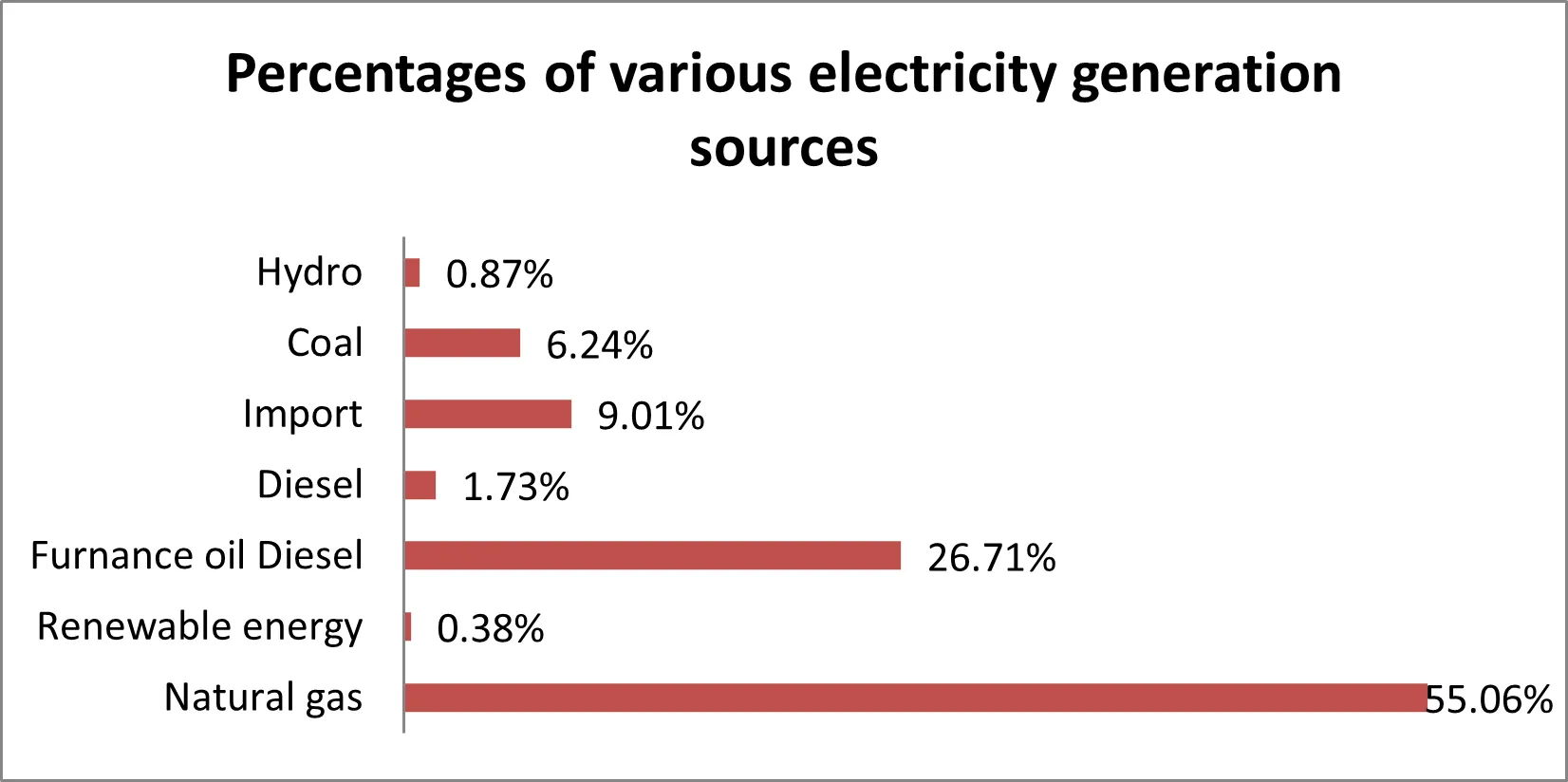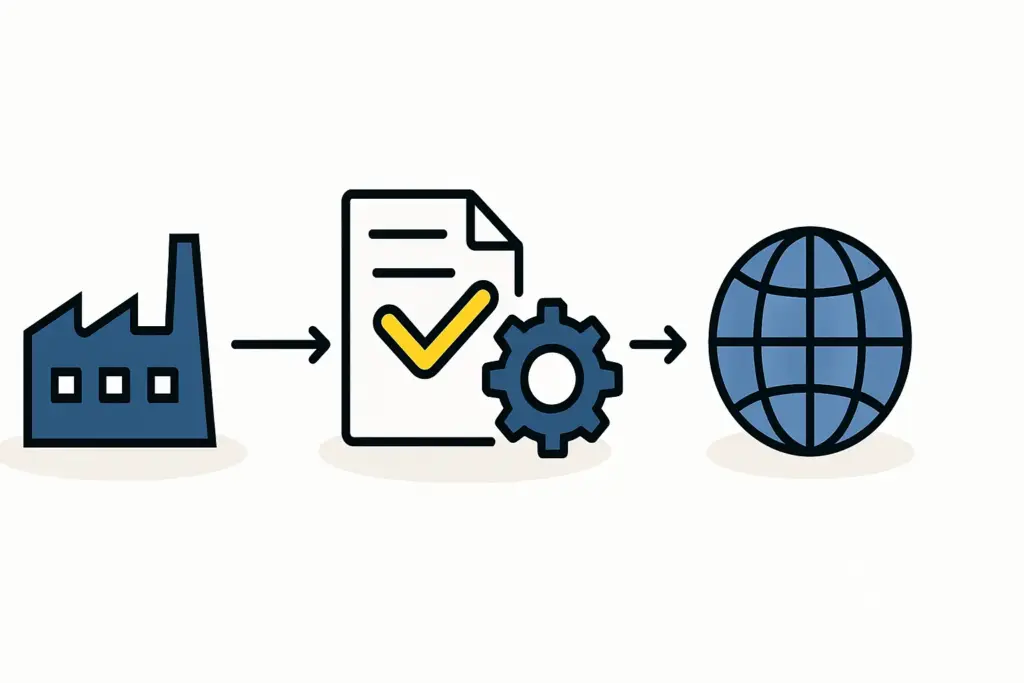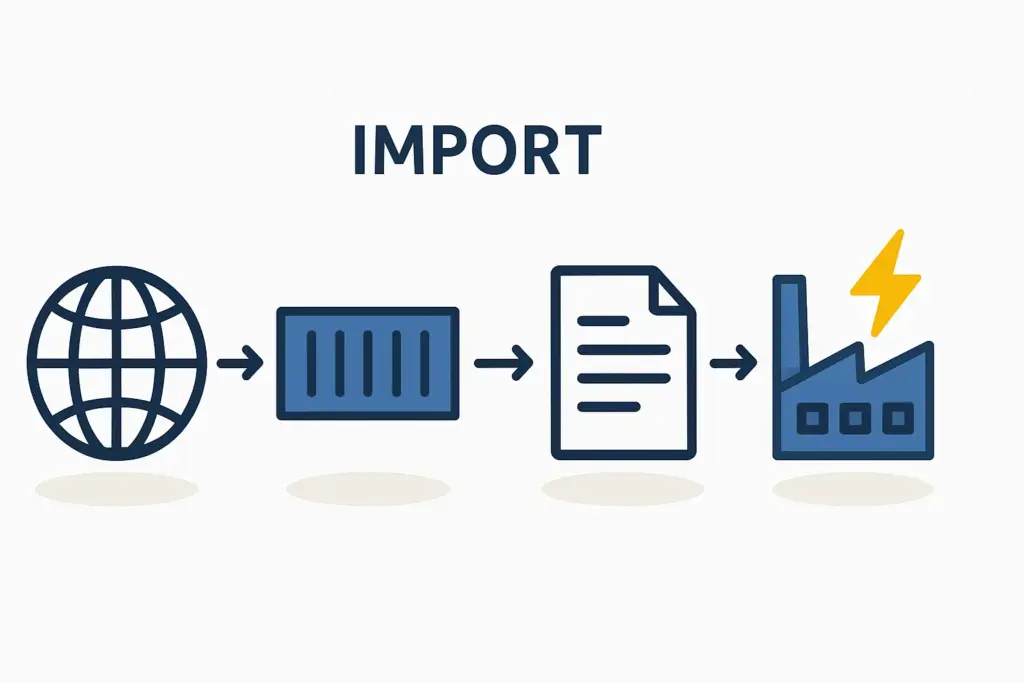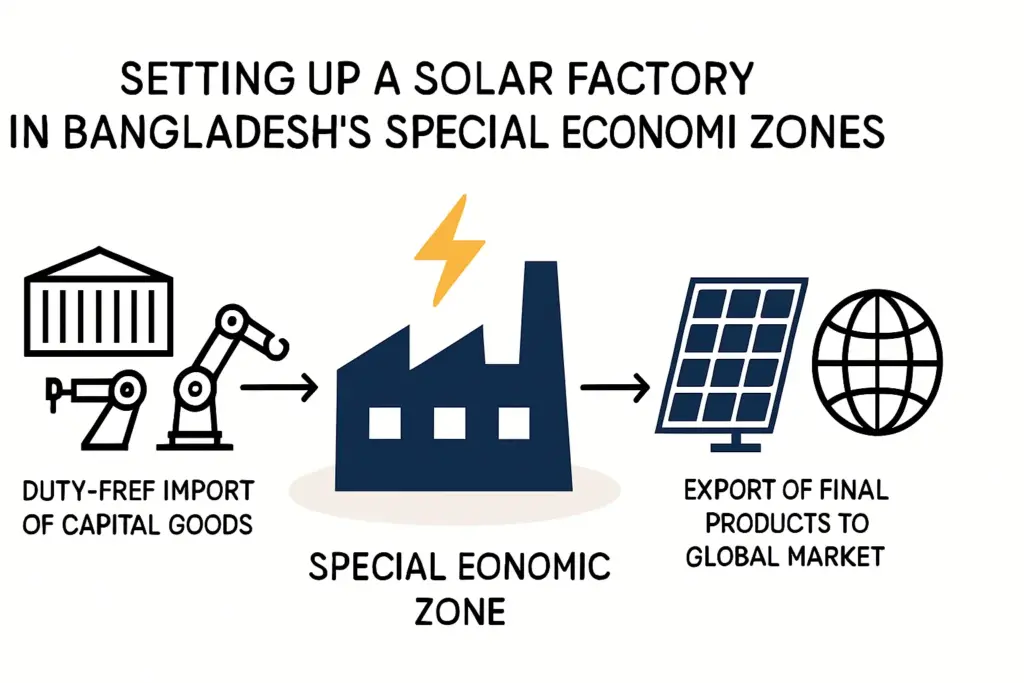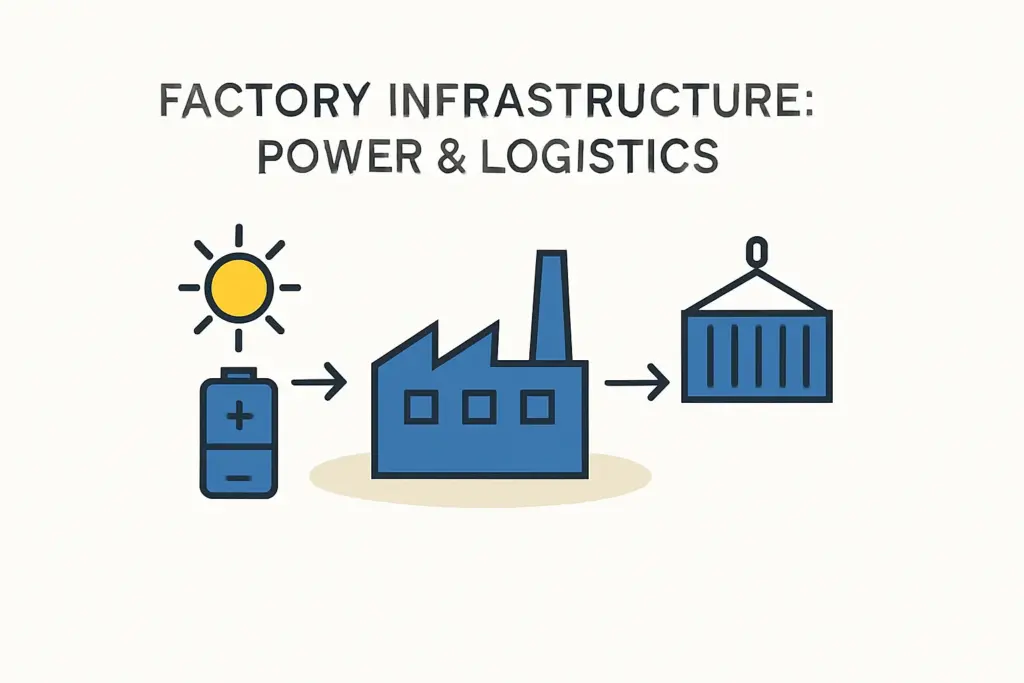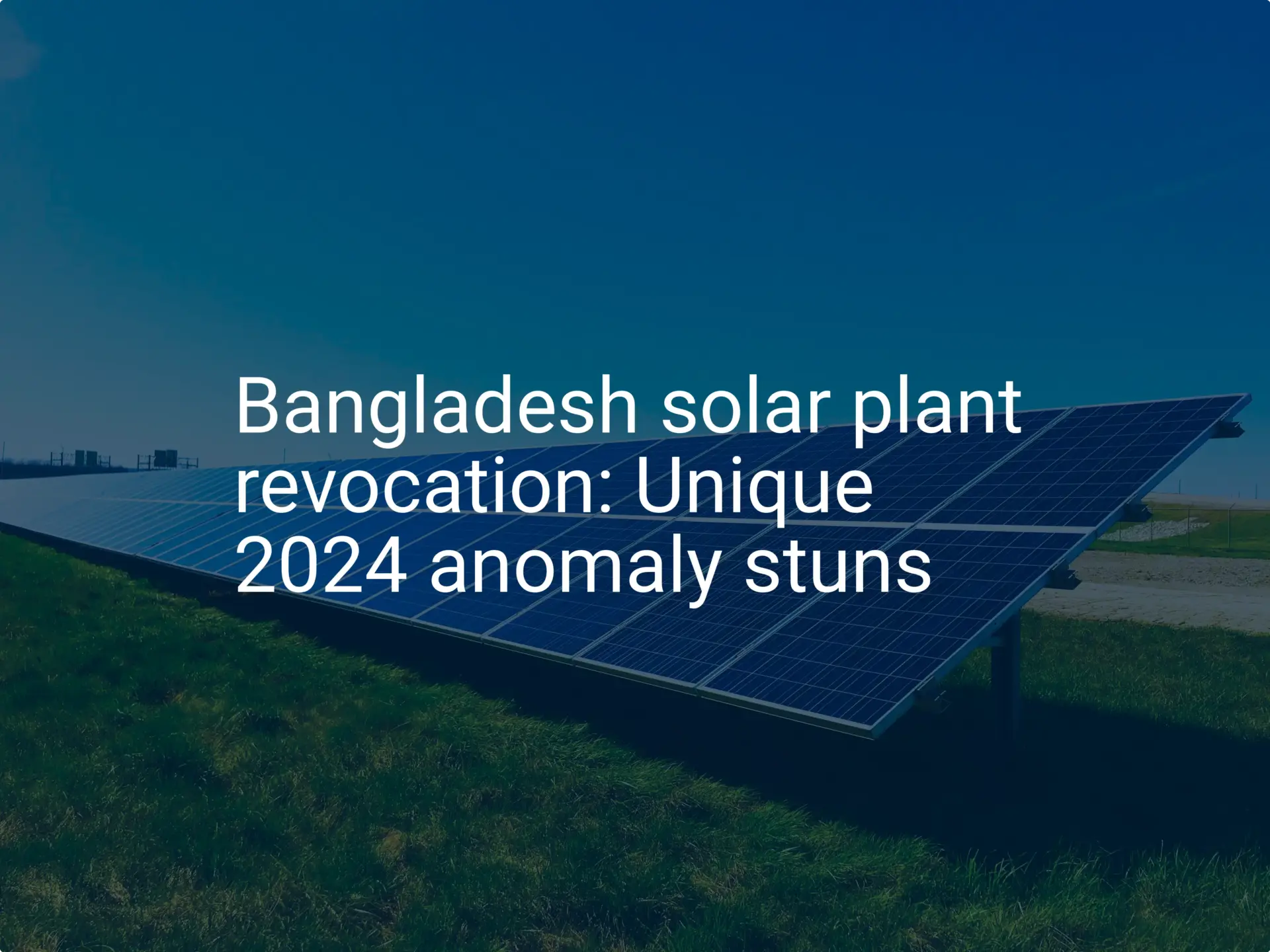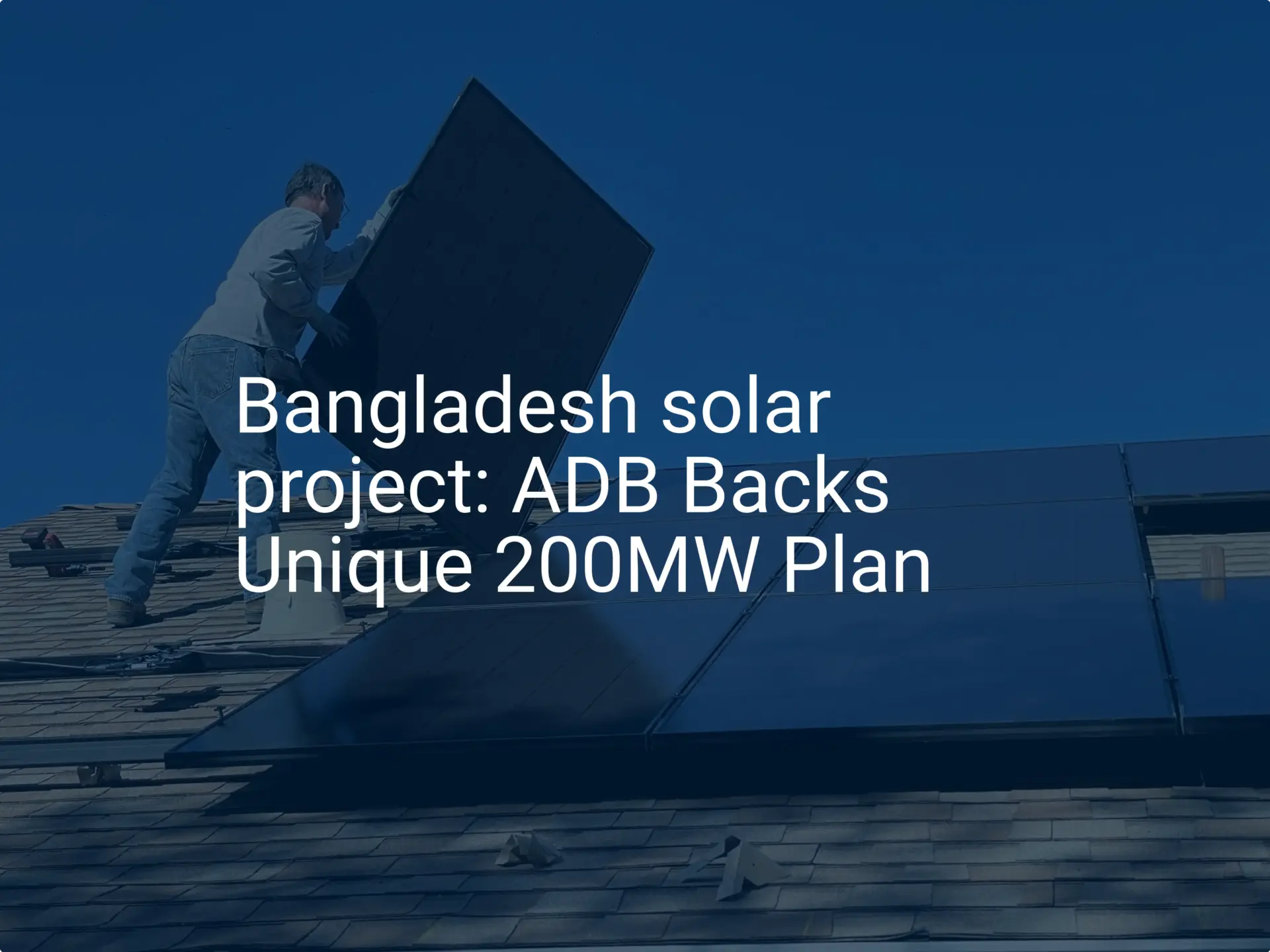Solar Industry Growth and Opportunities
Explore the statistics, market trends, and growth potential of the solar panel manufacturing industry in Bangladesh.
As the country accelerates its shift toward renewable energy, major initiatives like the Bangladesh national solar park project are creating a robust foundation for industrial expansion. This growth is naturally supported by the region’s geography, which offers substantial average peak sun hours in Bangladesh per day, ensuring high efficiency for photovoltaic installations.
Whether you are researching the best solar panel brands in Bangladesh or evaluating market entry strategies, understanding the local manufacturing landscape is the first step toward capitalizing on this sustainable energy boom.
- Fayeen, S. K., Ovy, E. G., & Hossainy, T. A. (2011). Closed environment design of solar collector trough using lenses and reflectors. Presented at the World Renewable Energy Congress – Sweden, Linköping, Sweden. Retrieved May 7, 2024, from https://doi.org/10.3384/ecp110573852
- Wikipedia contributors. (2024). List of cities by sunshine duration. Wikipedia, The Free Encyclopedia. Retrieved May 7, 2024, from https://en.wikipedia.org/wiki/List_of_cities_by_sunshine_duration
- Shishir, J. A., & Abdullah, S. (2024). Electricity price hiked Tk0.75 unit from February. The Business Standard. Retrieved May 7, 2024, from https://www.tbsnews.net/bangladesh/energy/electricity-price-hiked-tk075-unit-from-february-801278
- Bangladesh Power Development Board. Power generation units (fuel type wise). Retrieved May 8, 2024, from https://bd.bpdb.gov.bd/bpdb/power_generation_unit
- Koons, E. (2023). Solar energy in Bangladesh: Current status and future. Energy Tracker Asia. Retrieved May 7, 2024, from https://energytracker.asia/solar-energy-in-bangladesh-current-status-and-future/
- Varadhan, S., & Fang, A. (2024). Bangladesh’s 2023 coal-fired power output tripled, easing shortages. Retrieved May 7, 2024, from https://www.reuters.com/article/bangladesh-power-coal-idUSKBN2FZ1Z2
- Alam, S. (2023). Bangladesh needs up to US$1.71 billion annually until 2041 for 40% renewable energy capacity. Institute for Energy Economics and Financial Analysis (IEEFA). Retrieved May 7, 2024, from https://ieefa.org/articles/bangladesh-needs-us171-billion-annually-until-2041-40-renewable-energy-capacity
- Alam, S. (2023). Charting an electricity sector transition pathway for Bangladesh. Institute for Energy Economics and Financial Analysis (IEEFA). Retrieved May 7, 2024, from https://ieefa.org/resources/charting-electricity-sector-transition-pathway-bangladesh
- Hydrocarbon Unit, Energy and Mineral Resources Division, Ministry of Power, Energy and Mineral Resources. (2023). Energy scenario of Bangladesh 2021-22. Retrieved May 7, 2024, from https://hcu.portal.gov.bd/sites/default/files/files/hcu.portal.gov.bd/publications/ae775b7e_b63d_491d_81e4_b317ff8e11ca/2024-07-15-09-11-d13a3451b969fb9a3c5c74e9130c9f6c.pdf
- The World Bank. (2021). A game-changer in Bangladesh’s growth story: Solar home systems. Retrieved May 7, 2024, from https://www.worldbank.org/en/news/feature/2021/04/08/a-game-changer-in-bangladesh-growth-story-solar-home-systems
- Islam, S. (2024). Bangladesh’s solar project approvals hit 2.1 GW in 2023. PV Magazine. Retrieved May 7, 2024, from https://www.pv-magazine.com/2024/01/03/bangladeshs-solar-project-approvals-hit-2-1-gw-in-2023/
- Press Express. (2023). Floating solar power plant: Bangladesh’s innovative approach to green energy. Retrieved May 8, 2024, from https://pressxpress.org/2023/11/01/floating-solar-power-plant-bangladeshs-innovative-approach-to-green-energy/
- Statista. Solar energy – Bangladesh. Retrieved May 7, 2024, from https://www.statista.com/outlook/io/energy/renewable-energy/solar-energy/bangladesh
- Islam, S. (2021). Bangladesh’s rooftop solar sector gains momentum. PV Magazine. Retrieved May 7, 2024, from https://www.pv-magazine.com/2021/12/31/bangladeshs-rooftop-solar-sector-gains-momentum/
- Aurni, A. D. (2023). Alternative energy & power 2023. Practice Guide. Retrieved May 7, 2024, from https://practiceguides.chambers.com/practice-guides/alternative-energy-power-2023/bangladesh/trends-and-developments
- Worldometer. Bangladesh population. Retrieved May 7, 2024, from https://www.worldometers.info/world-population/bangladesh-population/
- Asia-Pacific Energy Policy and Planning Network. Renewable energy policy of Bangladesh. Retrieved May 7, 2024, from https://policy.asiapacificenergy.org/node/208
- Bangladesh Investment Development Authority (BIDA). General incentives. Retrieved May 7, 2024, from https://bida.gov.bd/incentives
- Infrastructure Development Company Limited (IDCOL). Archive 2018. Retrieved May 7, 2024, from https://idcol.org/home/archive/2018
- IEA/IRENA Policy and Measures Database. (2018). Import duty exemptions for solar and wind of Bangladesh (Statutory Regulatory Order). Retrieved May 7, 2024, from https://www.iea.org/policies/6128-import-duty-exemptions-for-solar-and-wind-of-bangladesh-statutory-regulatory-order
- Solar Land Company. LinkedIn page. Retrieved May 7, 2024, from https://www.linkedin.com/company/solarland-engineering-development-co-ltd/?originalSubdomain=bd
- Solar Land Company. Official website. Retrieved May 7, 2024, from https://solarland.com.bd/
- Solshare. Official website. Retrieved May 7, 2024, from https://solshare.com/
- Solshare. LinkedIn page. Retrieved May 7, 2024, from https://www.linkedin.com/company/me-solshare/?viewAsMember=true
- Alfanar Group. LinkedIn page. Retrieved May 7, 2024, from https://www.linkedin.com/company/alfanar/
- Alfanar Group. Official website. Retrieved May 7, 2024, from https://www.alfanar.com/index
- Dhaka Tribune. (2024). Bangladesh’s largest solar park in Gaibandha ready for inauguration. Retrieved May 7, 2024, from https://www.dhakatribune.com/bangladesh/nation/308620/bangladesh%E2%80%99s-largest-solar-park-in-gaibandha-ready






